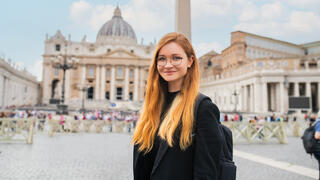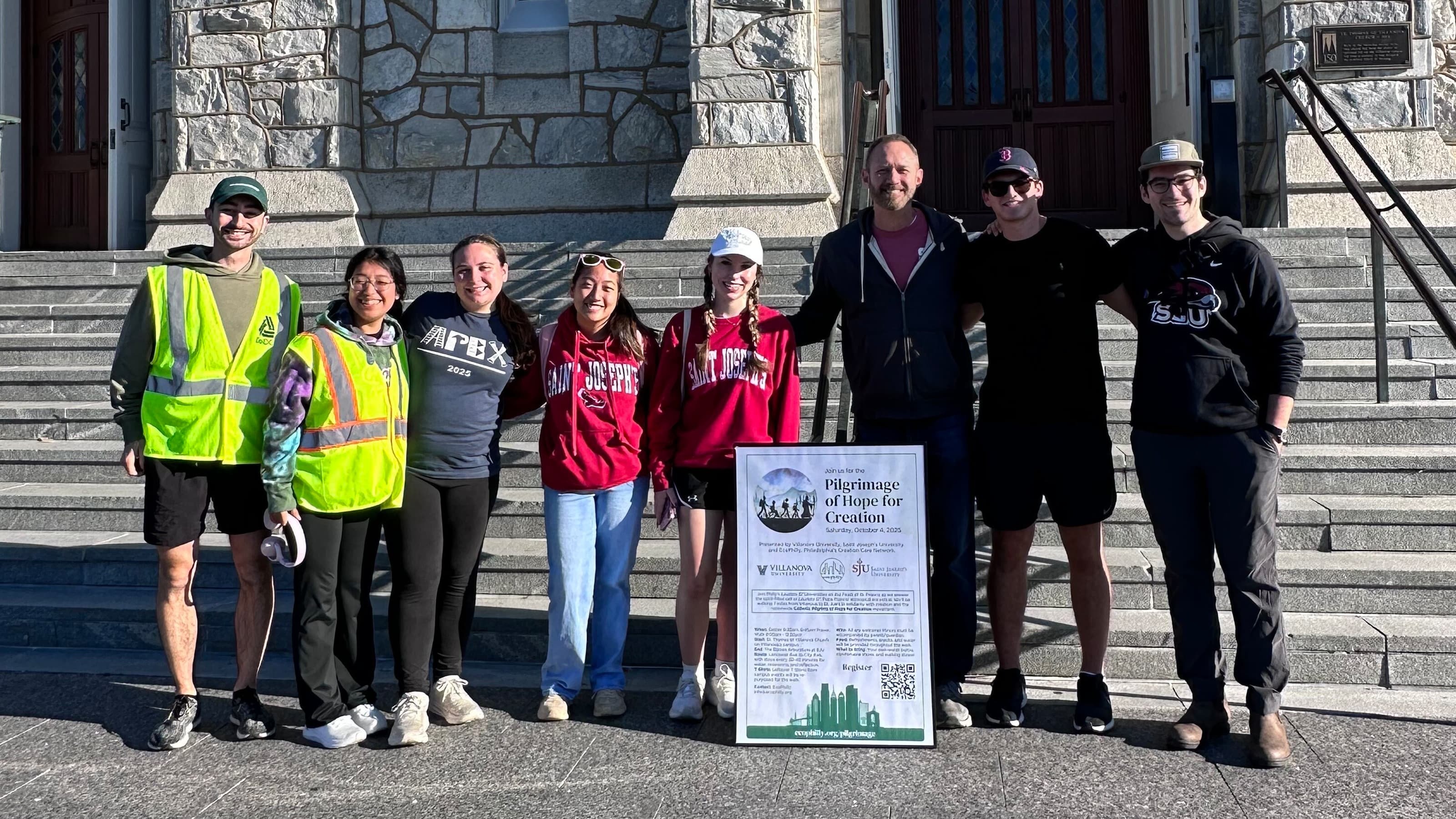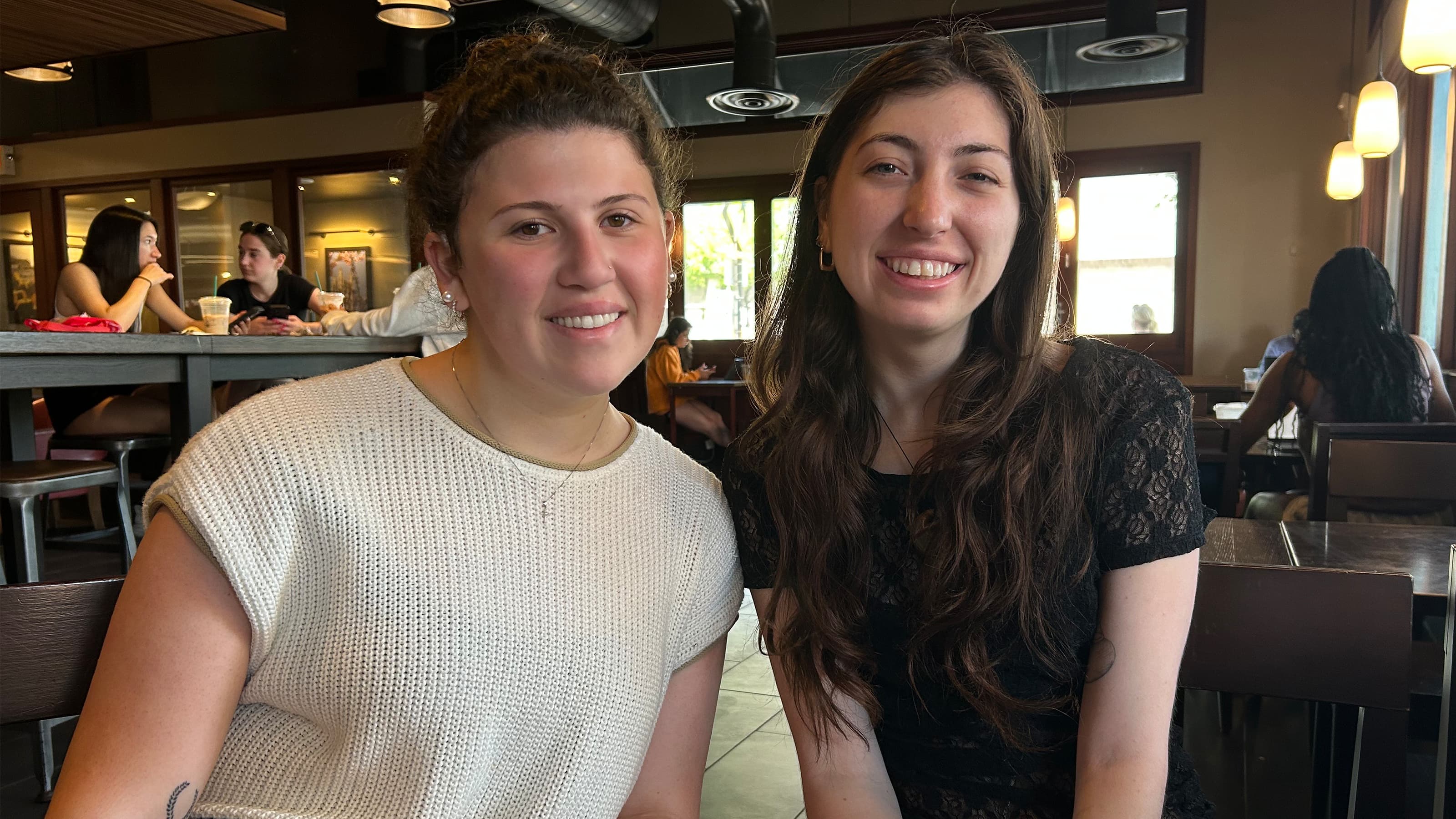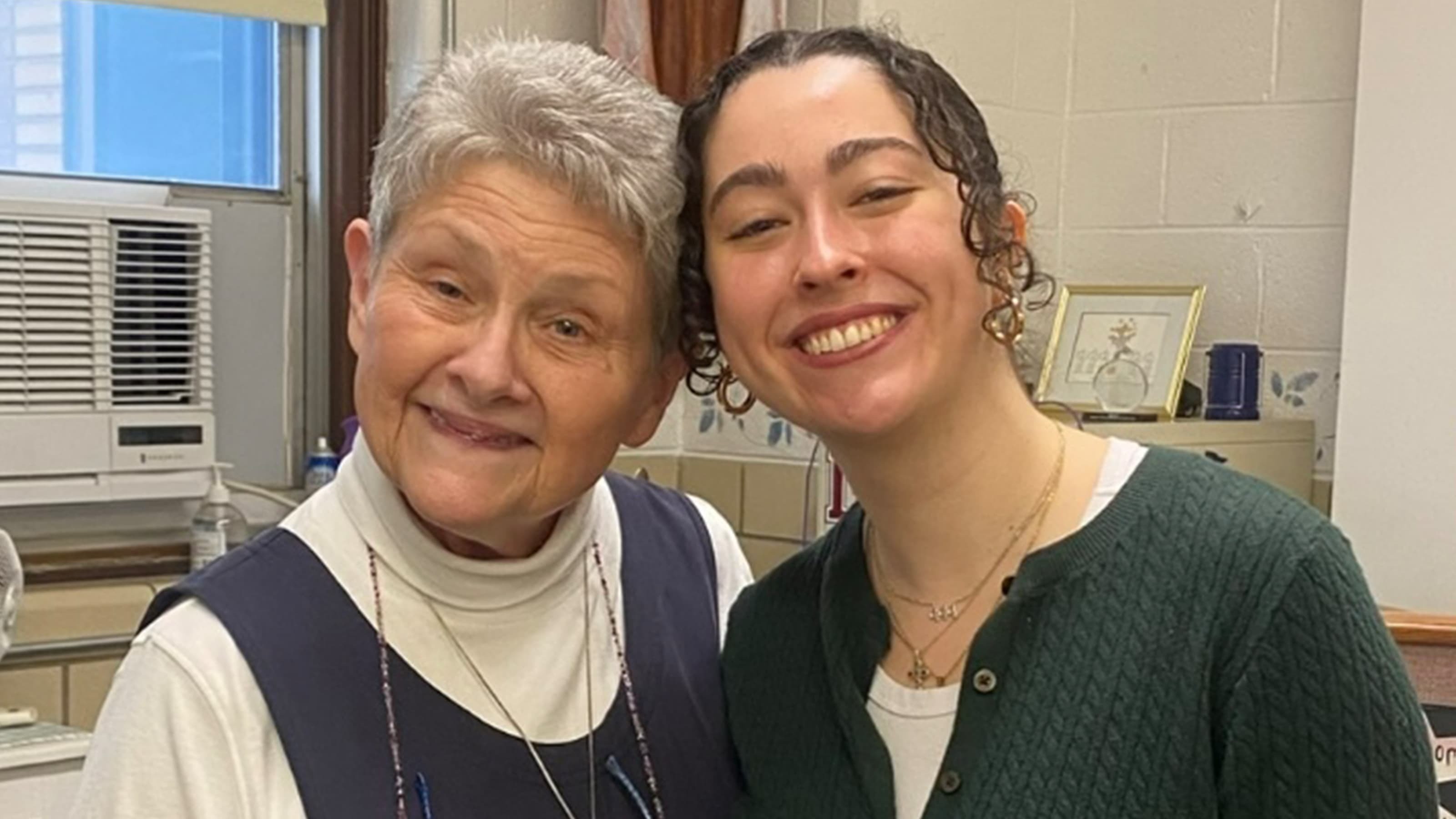Making History at the Vatican
The pope appointed a Saint Joseph’s student as one of only two laypeople from the United States to serve as a delegate to the Universal Assembly.

Pope Francis named Julia Osęka ’25 (above), a physics and theology major and student leader of SCHEAP (Synodality in Catholic Higher Education in the Archdiocese of Philadelphia), a voting delegate from North America to the XVI Ordinary General Assembly of the Synod of Bishops in Rome.
The Assembly took place during October 2023 and was the first of two such gatherings in the three-year global synod on “Communion, Participation and Mission,” which Pope Francis convened two years prior. This marks the first time in the history of the Roman Catholic Church that non-bishops had voting status in a synod.
How were you selected as a voting delegate and what was your reaction when you found out the news?
Osęka: I was surprised and overwhelmed with gratitude and excitement. I participated in the initial stage of the synod [in 2022] and got involved with SCHEAP, where I was asked to be a student leader. I was later asked to represent the Archdiocese of Philadelphia as a delegate to the continental stage of the synod. I gave a review of the synthesis from North America and participated in a debrief session. When Pope Francis announced that women and young people would be invited to be delegates, Philadelphia Archbishop Nelson Pérez put in a recommendation for me. From there, I ended up being selected as a delegate.
Why is having young people’s voices heard in the Church so important?
Osęka: Young people are part of the Church. I think every person who is a part of a greater organization or group should be heard by people who make decisions. In this case, not only are we being heard by people who make decisions, but young people are also making decisions and voting. I think this truly represents the active diversity of the Catholic Church. [Young people] are the now of the Church, we are not merely someplace in the future.
What was unique about this synod and what role did you play in it?
Osęka: This synod was a gathering of bishops from all around the world and lay people; it was actually the first time that lay people and non-bishop members — religious people and priests who are not bishops — participated and also had a vote in the synod.
As a delegate, I carried with me the voices and experiences of the people from North America, especially the youth. I did so by participating in prayerful reflections and dialogue with other delegates and experts, as well as drafting reports and proposals.
What did you learn about the Catholic Church from this experience?
Osęka: One of the main things I learned is that diversity is a treasure. Our experiences of Catholicism are so different and yet we find a tremendous sense of unity, which has to be developed and cherished.



